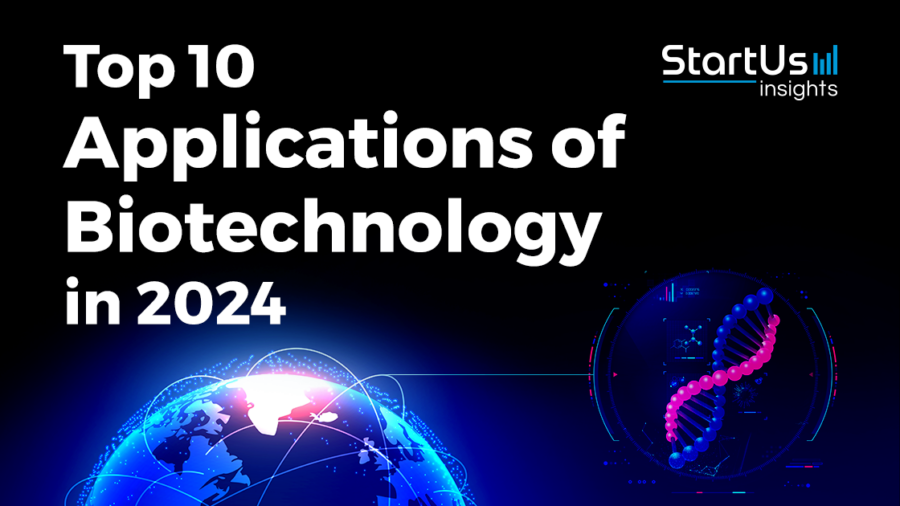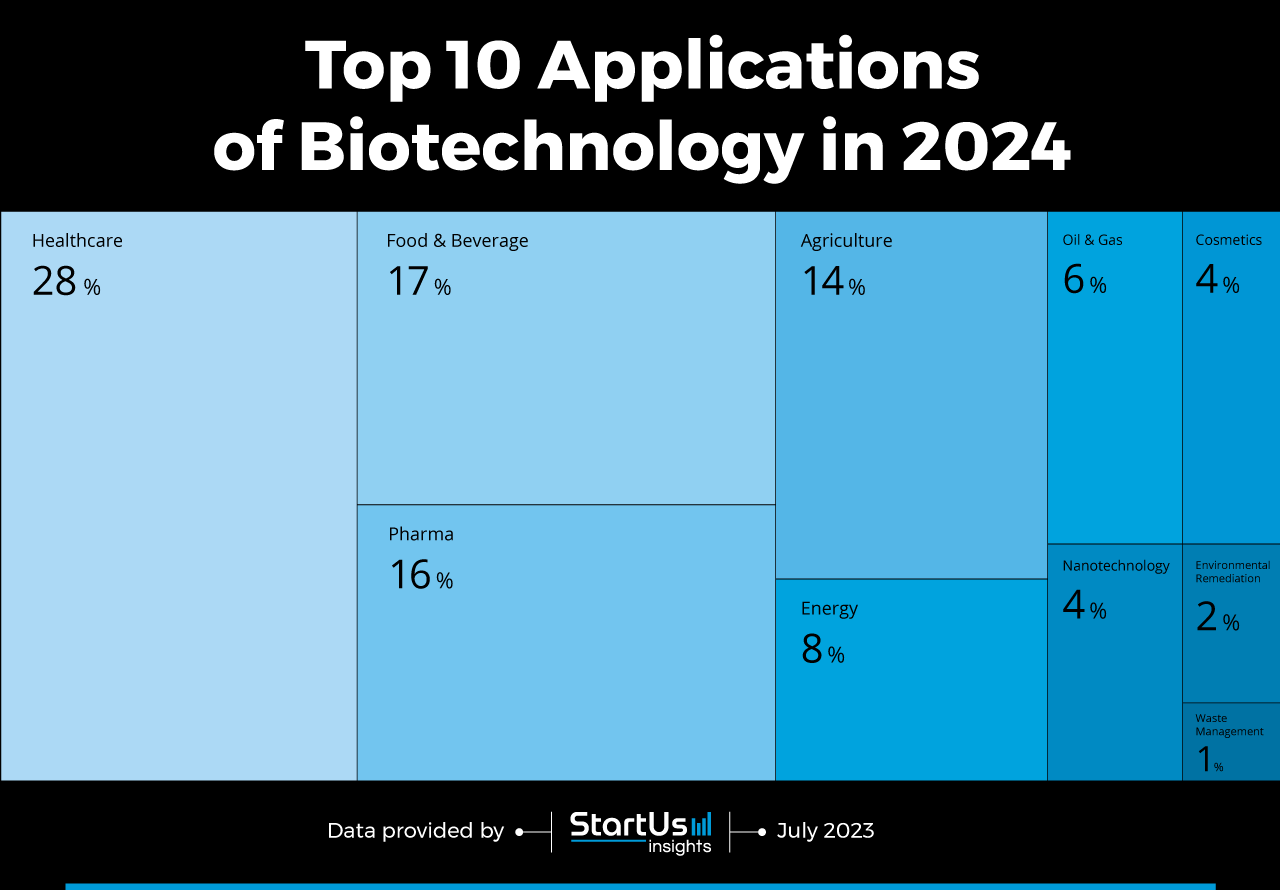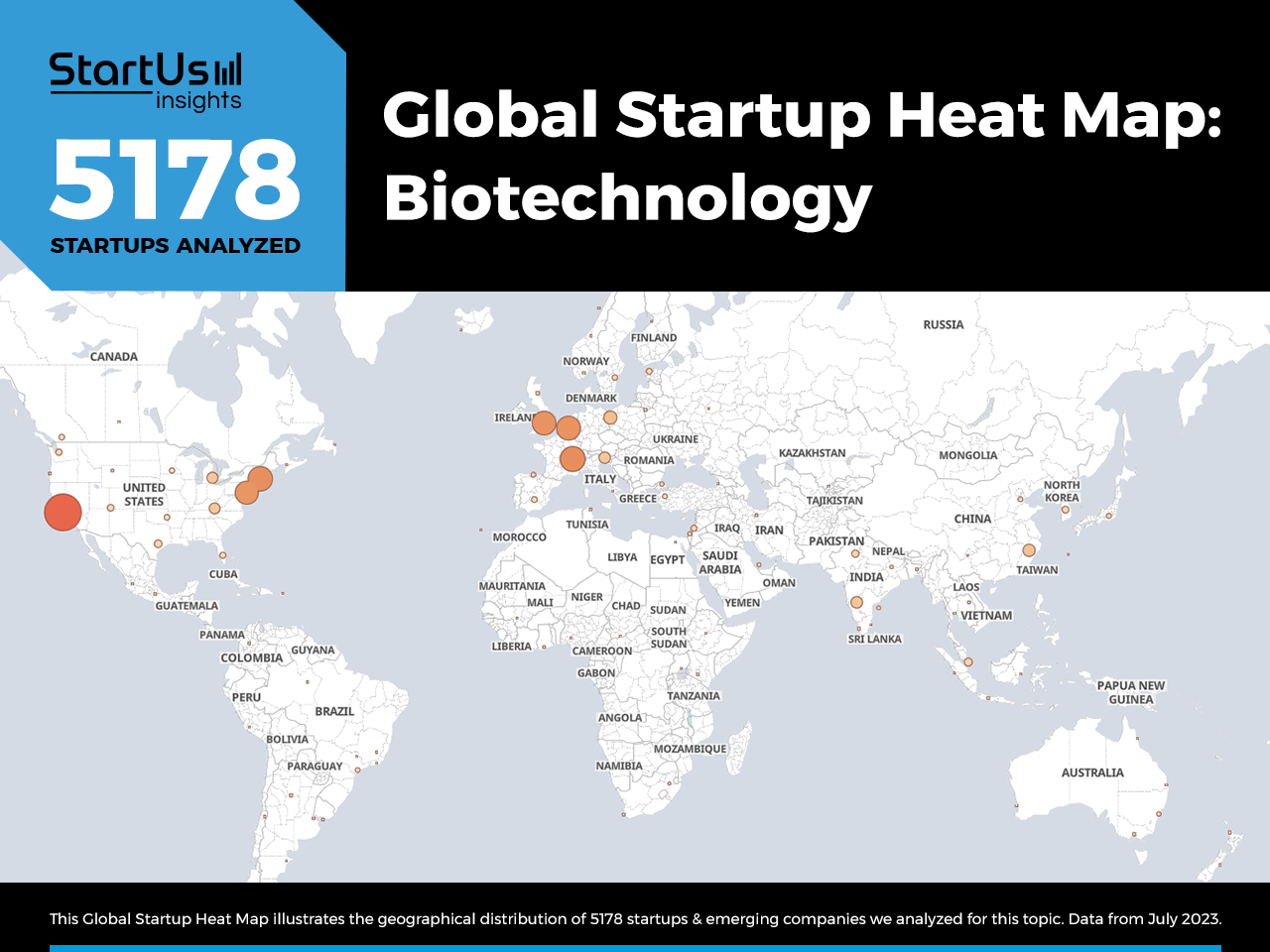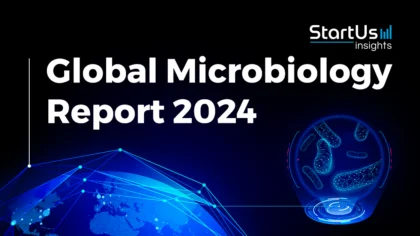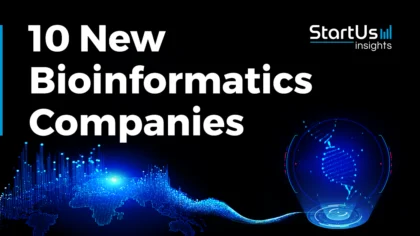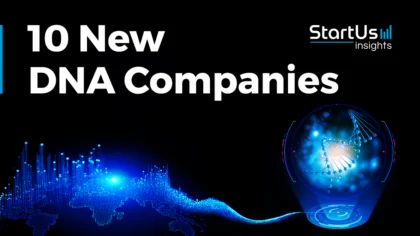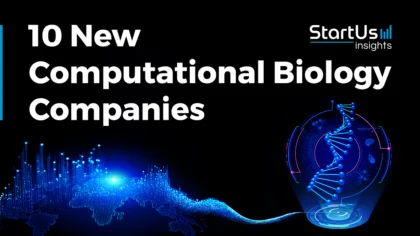The biotechnology sector relies on genetic manipulation, molecular biology techniques, and cellular processes to design and produce valuable products and services. These techniques find use in personalized medicine, genetically modified (GM) crops, and sustainable biofuels. The applications of biotechnology encompass a wide range of breakthroughs.
These include the development of novel pharmaceuticals using recombinant DNA technology, targeted genetic modifications using gene editing techniques like CRISPR-Cas9, and so on. As this interdisciplinary field continues to evolve, its potential to address global challenges and improve human life becomes increasingly apparent.
Tree Map reveals the Impact of Biotechnology Applications across 10 Industries
The Tree Map below illustrates the applications of biotechnology across 10 industries in 2024. In healthcare, biotech is instrumental in developing advanced medical treatments and gene therapies while the food and beverages industry uses it to produce bioengineered ingredients. Pharmaceutical biotechnology advances drug discovery, enabling the creation of targeted medicines for various diseases. For agriculture, biotech companies develop GM crops that are more resistant to pests and environmental stressors.
In the energy sector, startups use microbial fuel cells for sustainable electricity generation, whereas oil and gas companies benefit from biofuel production. Bioaugmentation and bioremediation techniques are deployed to clean up polluted environments. Further, biotechnology plays a crucial role in waste treatment processes, for example, converting organic waste into biogas and biofertilizers.
Global Startup Heat Map covers 5178 Biotechnology Startups & Scaleups
The Global Startup Heat Map below highlights the global distribution of the 5178 exemplary startups & scaleups that we analyzed for this research. Created through the StartUs Insights Discovery Platform that covers 3 790 000+ startups & scaleups globally, the Heat Map reveals that the US has a high concentration of biotech startups, followed by Europe and China.
Below, you get to meet 10 out of these 5000+ promising startups & scaleups as well as the solutions they develop. These examples of biotechnology applications are hand-picked based on criteria such as founding year, location, funding raised & more. Depending on your specific needs, your top picks might look entirely different.
Major Applications of Biotechnology in 10 Industries
1. Healthcare
Biotechnology enables the modification of genetic material to treat or prevent diseases. Gene therapy involves introducing or modifying genes in patients’ cells to treat genetic disorders, cancer, and other diseases. It also enables the production of recombinant proteins, antibodies, and vaccines using genetically engineered organisms. It is also instrumental in healthcare research, allowing scientists to analyze and manipulate genetic data.
Biotechnology tools like DNA sequencing and synthetic biology advance the discovery and development of new drug targets. Advancements in regenerative medicine are also made possible through the cultivation of living tissues and cells, offering promising treatments for previously untreatable conditions. Also, while microbiome therapies restore microbial imbalances and address gastrointestinal disorders, synthetic biology harnesses biotechnological tools to engineer organisms and design biological circuits.
Additionally, healthcare facilities leverage advanced techniques like polymerase chain reaction (PCR) and next-generation sequencing (NGS). They enable the identification of genetic mutations, infectious agents, and biomarkers associated with various diseases.
NKILT Therapeutics provides Natural Killer Cell Therapy for Cancer
US-based startup NKILT Therapeutics develops a technology to engineer immune cells to directly target leukemias and solid tumors. Its proprietary binding technology, Chimeric ILT-Receptor (CIR), targets the inducible immune checkpoint human leukocyte antigen G (HLA-G).
The startup designs its CIR-natural killer (NK) cells to exquisitely target and kill cancer cells while activating innate immunity to target the tumor’s defense mechanisms. The startup manufactures the CIR-NK cells off-the-shelf, making them more accessible and cost-effective than other cell therapies.
2. Food & Beverage
Traditional biotechnological processes like fermentation are paramount to the production of various food and beverage products. Companies utilize microbes like bacteria, yeast, and fungi to convert raw materials into desirable products like beer, wine, and cheese. Enzymes derived from microorganisms also find use to enhance the efficiency of food processing, improve texture, and modify flavors. Food businesses also use enzymes, like amylase, protease, and lipase, to improve dough texture, tenderize meat, and enhance the flavor of cheese.
Through genetic engineering, biotechnology enables the production of novel plant-based and cultured protein sources, catering to the rising demand for sustainable alternatives to traditional animal products. Moreover, biotech tools enhance food safety by detecting contaminants and pathogens, reducing the risk of foodborne illnesses. Additionally, waste management techniques, such as microbial fermentation enable the conversion of food waste into fuel and minimize their environmental impact.
MeatLeo manufactures Plant-based Meat
MeatLeo is a Canadian startup that creates plant-based meat. The technology utilizes plant-based cells to create lab-grown meat that is indistinguishable from traditional animal meat, providing a more sustainable and ethical way to produce meat. Once fed to a nutrient-rich broth, the cells grow and multiply exponentially. The resulting meat is identical to traditional animal meat in terms of taste, texture, and nutritional content.
Cellular agriculture does not require the use of animals and does not contribute to greenhouse gas emissions or water pollution. Also, MeatLeo’s technology eliminates the need for animal suffering, leading to more sustainable and ethical meats.
3. Pharma
Biotechnology plays a vital role in identifying and designing potential drug candidates. Techniques such as genetic engineering, combinatorial chemistry, and high-throughput screening enable the identification and modification of drug targets and the development of novel compounds with therapeutic potential. It also paves the way for the development of biopharmaceuticals, also known as biologics.
Pharma companies produce therapeutic drugs through recombinant DNA technology and include proteins, antibodies, and hormones. This also enables the development of vaccine platforms, including mRNA and viral vector-based vaccines. Advances in genomics, proteomics, and bioinformatics allow for the identification of biomarkers, genetic variants, and drug responses. This aids pharma companies deliver more effective and personalized treatments.
Luzsana Biotechnology offers Targeted Biotech-based Medicines
US-based startup Luzsana Biotechnology develops targeted medicines for patients with cancer and other serious diseases. The company combines gene therapy, immunotherapy, and targeted therapy to develop new treatments that target the underlying causes of disease. Medicines in the pipeline such as HER-2 and KRAS-G12D are more effective and less toxic than traditional cancer therapies. The startup’s HRS-4800 uses a channel blocker that addresses the management of chronic pain post-chemotherapy.
Luzsana Biotechnology’s solutions like HRS-4800 offer relief to unmet needs in cancer treatment like chronic pain post-chemotherapy. This improves patient comfort and well-being. Luzsana Biotechnology’s pipeline enables the pharma industry to provide targeted medicines for the treatment of cancer and diabetes.
4. Agriculture
Biotechnology in the agri industry finds applications in crop improvement, genetic engineering, disease resistance, and enhanced food production. Genetically modified crops benefit farmers by reducing crop losses due to pests, diseases, and weeds, thus improving their yield and profitability. Additionally, GM crops minimize the need for chemical pesticides, reducing farmers’ exposure to harmful chemicals. Consumers also benefit from genetically modified crops that have improved nutritional content and extended shelf life.
Plant tissue culture also benefits farmers by providing them with disease-free and high-quality planting material, leading to improved crop yields. This technique aids in the conservation and preservation of endangered plant species, contributing to biodiversity conservation. The use of biopesticides further enables farmers to provide effective pest and disease control while minimizing environmental impact. Biopesticides are generally less harmful to non-target organisms, including beneficial insects and pollinators.
Thomas Biotech develops Bio-modified Crops
Thomas Biotech is an Indian startup that uses tissue culture to multiply crops. It produces genetically identical clones of different plant species and then acclimatizes and supplies these micro-propagated plants to farmers or nurseries. This allows the startup to produce better quality, disease-free plants.
Thomas Biotech’s products are sold to farmers and other businesses in the agriculture industry. Its tissue culture papaya, DAWN DELIGHT, is a unisex female papaya with parthenocarpic seedless fruits. The startup also produces micro-propagated pomegranate and acid lime. Thomas Biotech’s bio-modified crops provide an efficient way for farmers to acquire and produce higher-quality crops.
5. Energy
Within the energy industry, companies apply biotech solutions for biofuel production, bioenergy production, and waste-to-energy applications. Microbial fuel cells (MFC) use bacteria to break down organic matter, such as wastewater or agricultural waste, to generate electrical energy. This delivers a sustainable and decentralized source of electricity, particularly in remote or off-grid areas where traditional power sources are scarce. Biotechnology also finds use in the production of biofuels, such as ethanol and biodiesel.
Companies leverage microorganisms to ferment biomass feedstocks, such as corn, sugarcane, or algae, to convert them into usable fuels. This benefits both the energy industry and the environment by providing an alternative to fossil fuels and reducing greenhouse gas emissions. Researchers also use bioluminescent organisms or genetically modified bacteria to emit light, which generates light without external power sources.
Voltaplant develops a Plant Microbial Fuel Cell
Italian startup Voltaplant utilizes the natural electrical properties of plants to generate energy. The startup manufactures plant microbial fuel cells (PMF), based on the bioelectric effect, allowing the creation of continuous power generation systems. After identifying plant species that are more likely to emit charge carriers, Voltaplant uses the PMF cells to capture the charge carriers diffused by plants into the soil.
The startup’s custom electronic board enables the generation of direct and performing electric current for any electrical device that meets the electrical voltage specifications. Voltaplant’s PMF cells areeffective for lighting companies and electronic device manufacturers, providing a clean and sustainable way to power their products.

6. Oil & Gas
The oil and gas industry has been exploring various applications of biotechnology to improve operations and mitigate environmental impacts such as waste management and bioremediation. For example, companies introduce microorganisms to break down the hydrocarbons present in oil spills into less harmful substances, like carbon dioxide and water.
Petroleum companies also use microbial-enhanced oil recovery (MEOR) using bacteria or other microbes to improve oil recovery from reservoirs. These microbes alter the properties of the oil or its surrounding rock to enhance oil flow and extraction efficiency. MEOR benefits oil companies by increasing production rates and extending the lifespan of oil reservoirs, which in turn provides a steady supply of energy resources.
Biotechnology also enables the development of biodegradable lubricants derived from renewable sources such as vegetable oils. These lubricants offer a more environmentally friendly alternative to conventional petroleum-based lubricants. Further, researchers use genetically modified microbes to break down complex hydrocarbons or assist in the production of biofuels.
Kvasir Technologies generates Carbon-neutral Biofuel
Danish startup Kvasir Technologies uses solvothermal liquefaction to convert plant biomass into a carbon-neutral drop-in biofuel. This biofuel serves as a substitute for fossil marine fuel that existing ships use without modifications. It is compatible with fossil fuel oil, allowing for blending and a gradual transition toward complete decarbonization.
The process liquefies solid biomass while retaining the combustible energy present in the biomass. The technology is scalable, sustainable, and relies on non-edible plant material, making it carbon neutral and environment friendly.
7. Cosmetics
The cosmetics industry embraces biotechnology to identify, extract, and produce active ingredients from natural sources like plants and algae. Cosmetic brands also use fermentation to allow for the controlled growth of microorganisms and the extraction of beneficial compounds. This method provides a more cost-effective and eco-friendly way to obtain high-quality ingredients compared to traditional extraction methods.
Microbial contamination leads to adverse effects on the skin or causes infections. Biotechnological tools, such as DNA-based methods and microbial fingerprinting, enable more accurate and rapid identification of such contaminants. This allows companies developing beauty and wellness products to ensure the safety of their products. Further, companies utilize genetic testing to gather information about a person’s skin type, sensitivity, and specific needs to formulate personalized skincare or makeup products.
Olga Cola offers Sustainable Bio-based Cosmetics
Italian startup Olga Cola advances skincare with sustainable and bio-based cosmetic products. Leveraging green biotechnology, the startup extracts enzymes, bacteria, and yeast through a proprietary fermentation process. These bioliquefacts enable the startup to create skincare products with heightened bioavailability, promoting skin health and rejuvenation.
Using a microbiota defense system, the startup’s products maintain skin health, while the enzymatic bioliquefacts break down dead cells, improving skin texture. Additionally, the startup uses a lipo recovery complex that targets cellulite reduction. Olga Cola thus applies biotechnology to offer scientifically-backed and customizable cosmetics.
8. Nanotechnology
Researchers utilize nanobiotechnology to incorporate biological molecules, such as proteins or antibodies, onto the surface of nanoparticles. This allows for the development of targeted drug delivery systems that transport medications directly to specific cells or tissues in the body. Such systems empower patients who require specific treatments by enhancing the effectiveness of therapies while minimizing side effects.
Nanotechnology also provides tools and materials for creating scaffolds and structures at the nanoscale. Biotech processes, such as cell culture and genetic engineering, use them to develop functional tissues and organs. In genetic engineering, nanotechnology-based tools, such as gene delivery vectors or nanoscale biosensors, facilitate the manipulation of genetic material within cells. Researchers use these techniques to modify cellular behavior, enhance cellular functions, and monitor the progress of tissue development.
Puxano aids Structure-based Protein Research
Belgian startup Puxano combines biotechnology and nanotechnology to accelerate structure-based protein research. Procondor, its bioinformatics software platform, enables data-driven and semi-automated protein construct design to support high-throughput expression and purification campaigns. UltraP, the startup’s platform for ultra-low yield (membrane) protein extraction and purification, enables protein characterization and quality assessment.
These technology platforms overcome bottlenecks in the standard structural biology pipeline, such as protein sequence analysis, construct design, expression, purification, and high-resolution structure determination. Puxano offers researchers a viable solution for achieving reproducible high-throughput protein structure determination.
9. Environmental Remediation
Environmental conservation agencies leverage bioremediation to break down and transform pollutants into less harmful substances. This is powered by microorganisms that degrade contaminants, including petroleum hydrocarbons, heavy metals, pesticides, and solvents. Bioremediation is applicable for soil, water, and air pollutants, and is more cost-effective and environmentally friendly.
Additionally, bioaugmentation introduces specialized microbial consortia into contaminated environments to enhance their natural remediation capabilities. These microbes possess unique metabolic pathways for breaking down specific contaminants or surviving harsh conditions. Organizations often employ bioaugmentation in conjunction with bioremediation to improve the degradation rates or efficiency of pollutant removal.
DND Biotech develops Autochthonous Microbial Bioremediation Technology
DND Biotech is an Italian startup that leverages bioremediation to clean up contaminated soil and water. It uses naturally found autochthonous microbial strains to facilitate bioremediation. The startup selects these strains, multiplies them, and then reintroduces them into the environment to degrade the pollutants. As bioaugmentation uses microbial strains already adapted to the specific polluted environment, it is more efficient at reducing pollutant concentrations.
Also, selecting strains that coexist with other microorganisms present in the polluted site is crucial for a successful bioremediation process. DND Biotech’s bioremediation technology is a more environmentally sustainable and cost-effective alternative to traditional methods of chemical treatment and excavation.
10. Waste Management
Industries and households use microbes to accelerate the decomposition of organic matter like food waste, yard trimmings, and agricultural residues. This reduces the volume of waste diverted to landfills and produces a valuable soil amendment.
Microbes also enable anaerobic digestion to break down organic waste in the absence of oxygen, producing biogas and nutrient-rich digestate. Industries leverage this biogas as a renewable energy source, while the digestate serves as fertilizer. Anaerobic digestion is suitable for various organic waste materials, including sewage sludge, agricultural waste, and food waste.
Certain microbes have the capability to ferment waste-derived sugars into biodegradable polymers, offering an alternative to conventional plastics derived from fossil fuels.
BioLoop advances Organic Waste Upcycling
BioLoop is a Malaysian biotech startup that uses black soldier fly larvae (BSFL) to digest and upcycle organic waste into high-quality protein for animal feed and nutrient-rich compost. The startup’s process is faster than traditional waste management means and results in lower greenhouse gas emissions.
Companies use the BSFL excrement to feed animals, fertilize crops, and produce biogas. The larvae thus divert significant amounts of organic waste from landfills. BioLoop provides businesses with a sustainable and efficient way to manage their organic waste.
Discover All Biotech Startups
With the increasing understanding of genetics and the availability of advanced sequencing technologies, biotechnology will play a crucial role in advancing personalized medicine. Innovations in material science will lead to extended product lifespans and improved recyclability, reducing the need for frequent replacements and minimizing waste. Moreover, the fields of biofabrication and synthetic biology offer new possibilities for creating products without heavy resource extraction.
Biotechnology is useful, but it also raises ethical and safety concerns due to the deliberate release of genetically modified organisms. There is also the possibility of unintended consequences such as genetic mutations, so strict regulation is crucial for responsible and secure use. Get in touch to identify specific biotechnology examples, use cases, startups, and technologies that help you advance your business!
